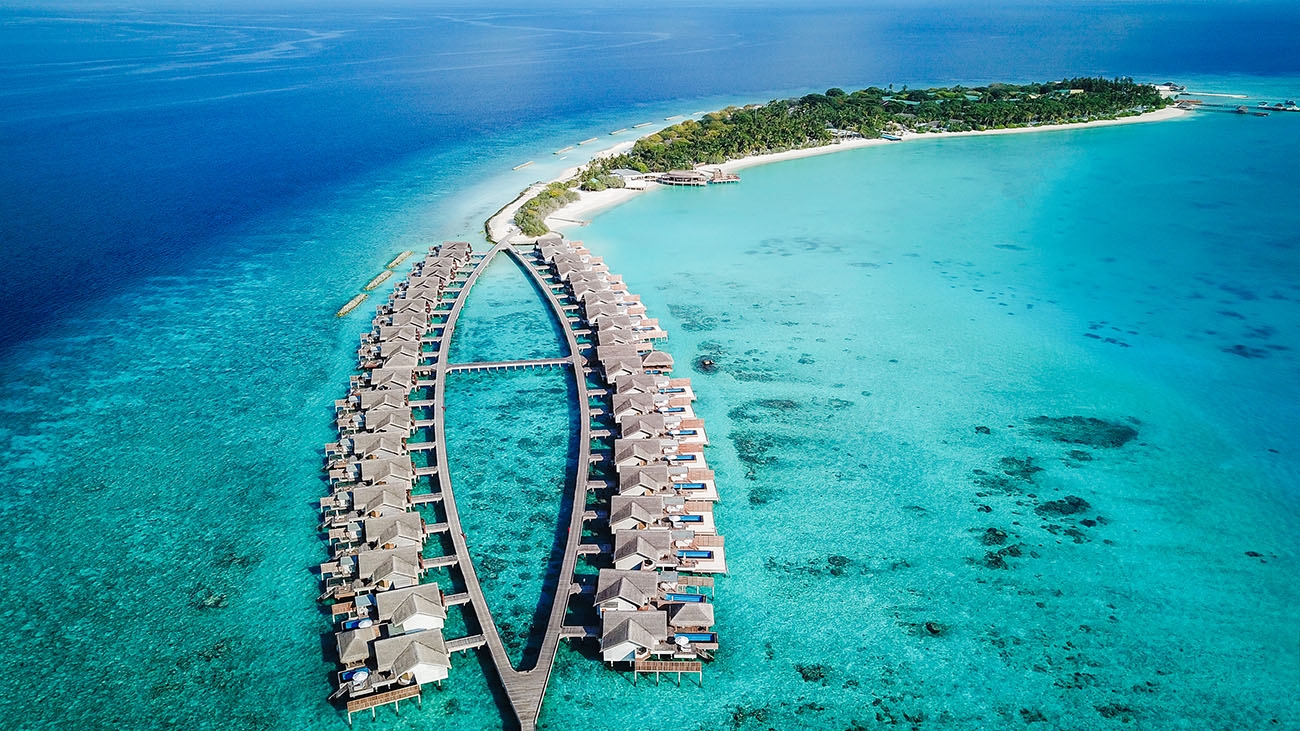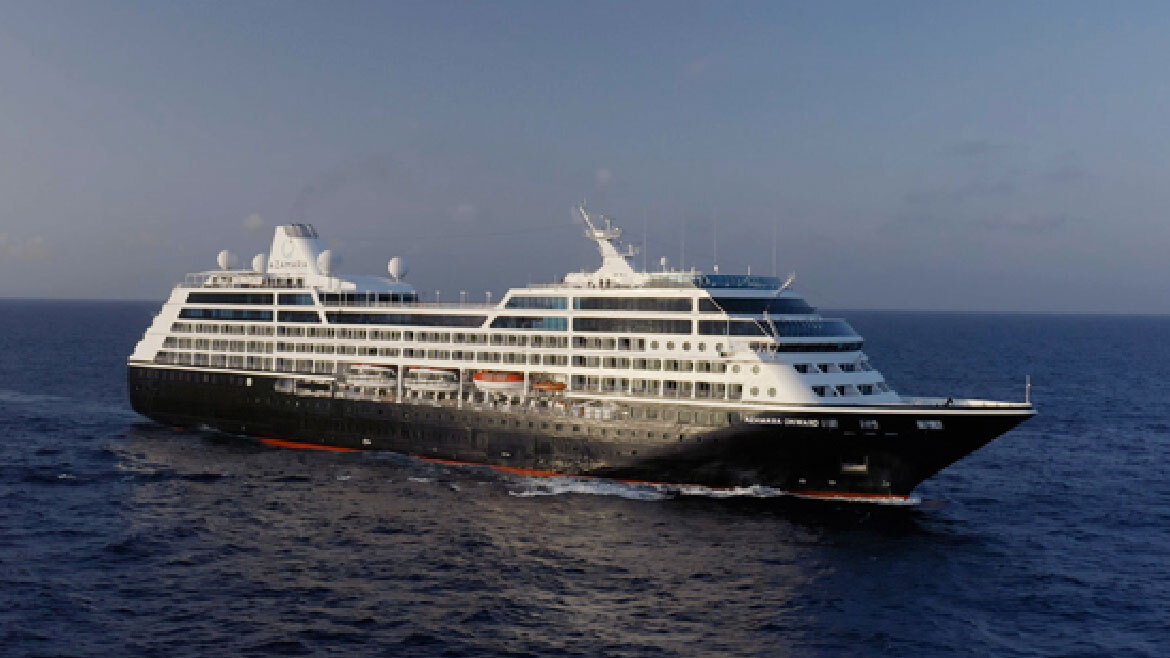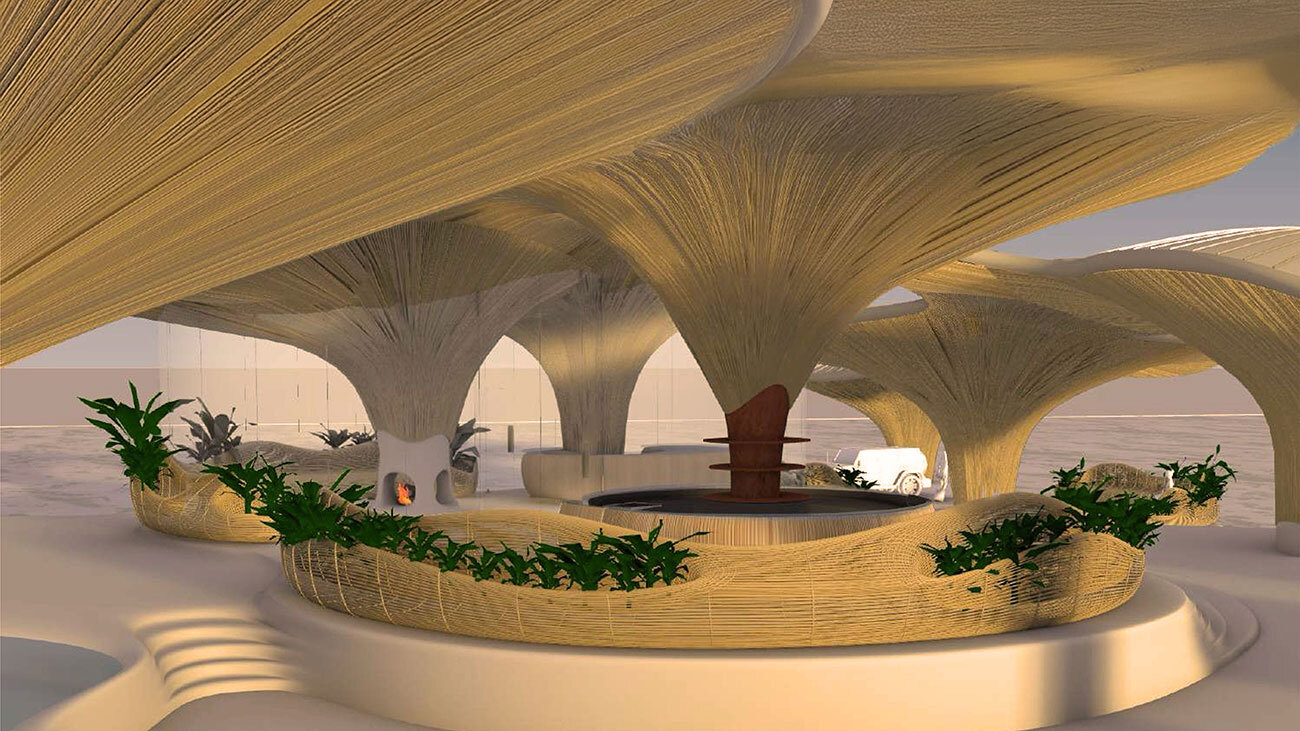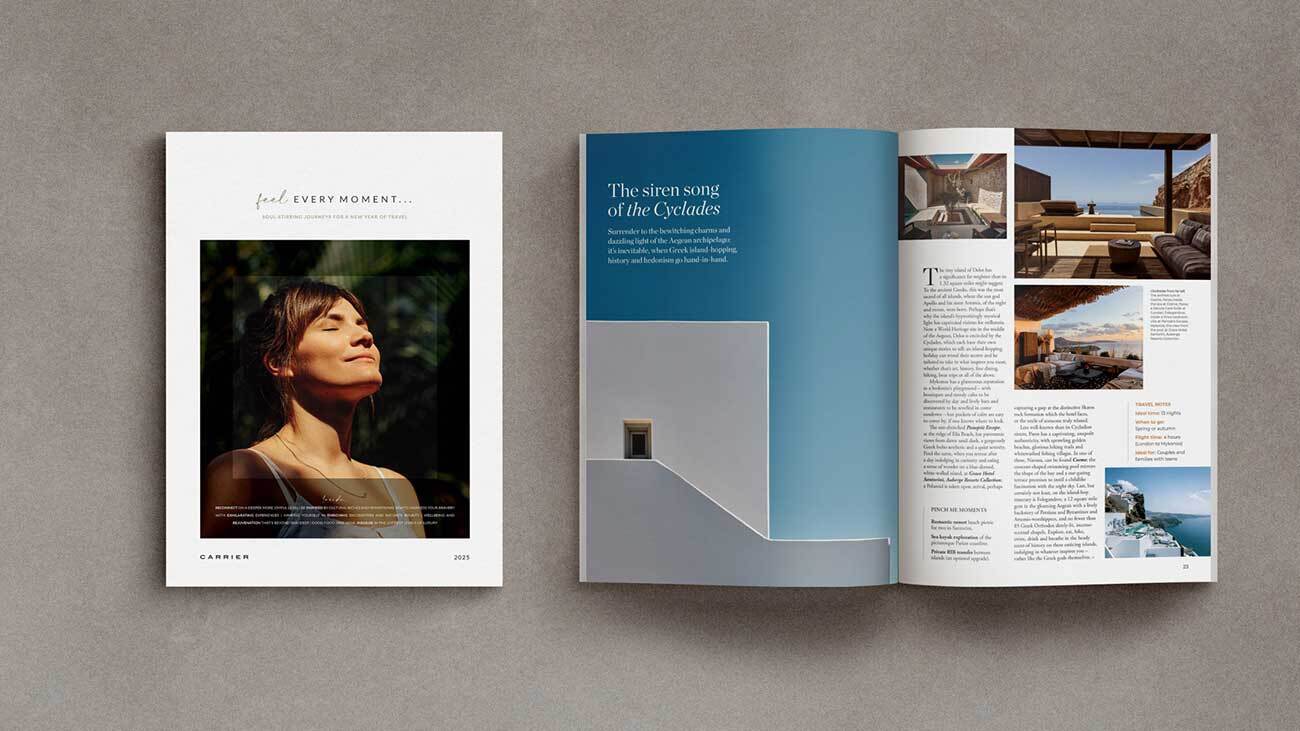Sustainability in the Maldives: how one resort is paving the way to a greener future
Got a client interested in responsible travel Fairmont Maldives Sirru Fen Fushi should be on your radar. The paradisical property on the Shaviyani Atoll has had sustainability at its core since its inception in 2018 and this year will build on a range of innovative initiatives with the environment in mind. Aspire sat down with the property’s general manager Andrew Steele (left) and marine biologist Sam Dixon (right) to find out what the resort has planned to protect the region’s magical marine life and educate the next generation of eco warriors.
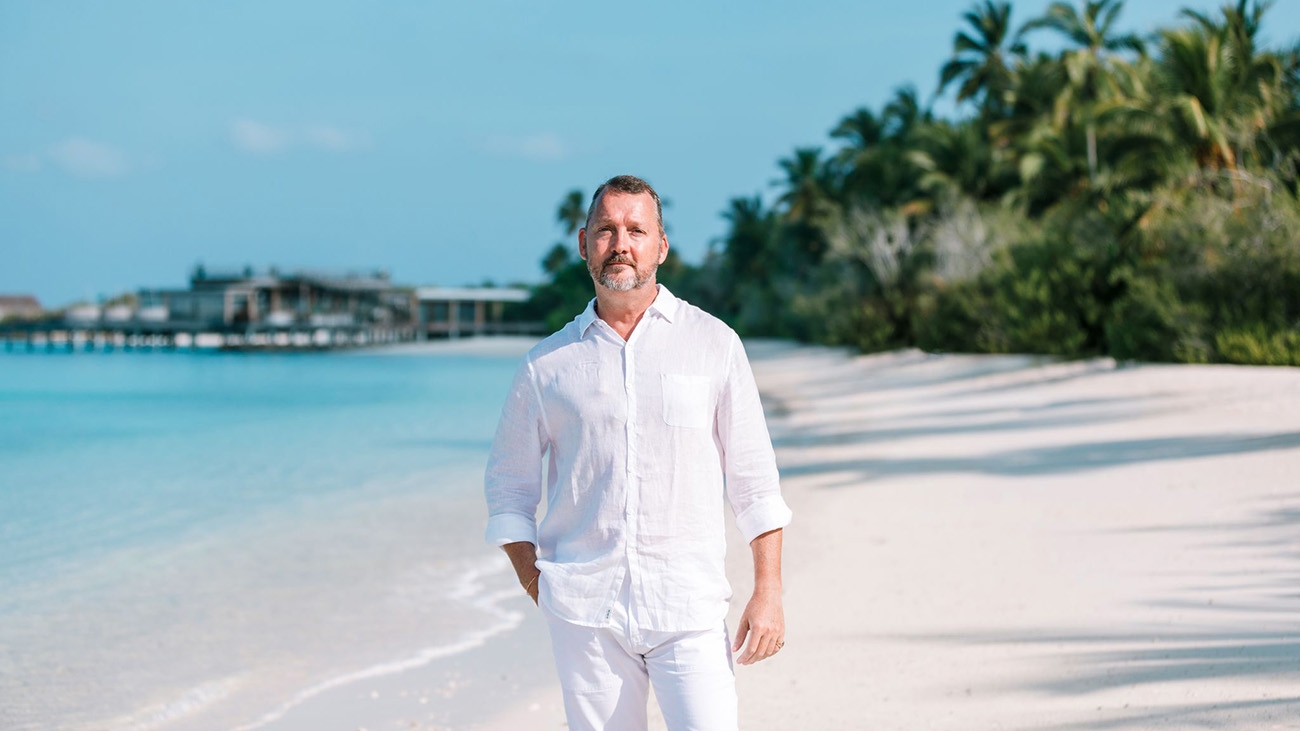
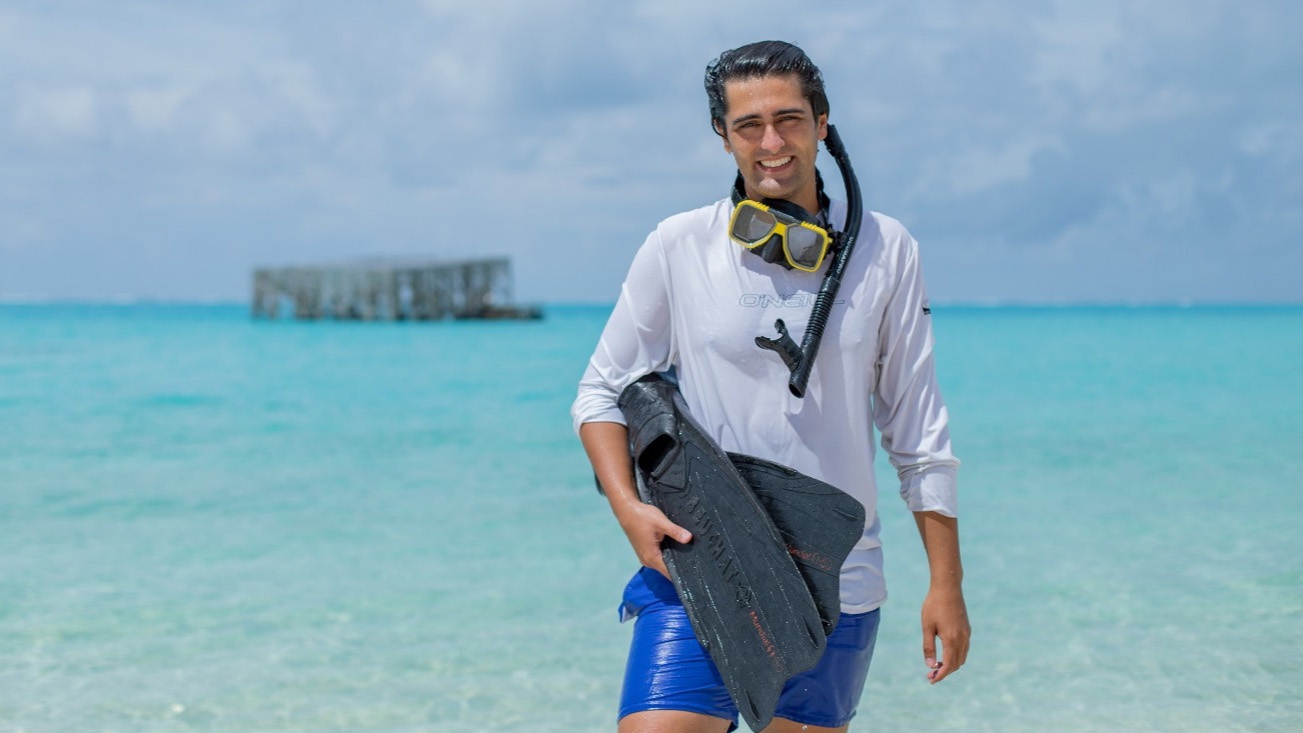
How did you get into travel and has sustainability always been a passion
S: Fairmont Maldives is a very forward thinking of the resort. In 2016, the coral reef ecosystem in the Maldives was undergoing the second worst bleaching event in the world and a lot of the coral had been affected. So as the owners were building [the resort], and working on the water villas, they decided to bring me in to help protect the coral and create a naturally occurring coral garden. Most resorts will just hire the marine biologist or the environmental team after the resort has been built, so it was really good to be involved in those management practices quite early on and help make a difference.
A: I joined on January 3, 2020. Someone asked me the other day, ‘how long have you been in this [sustainability] space ’ and I'm like, ‘I think forever’. Reality is I was very fortunate. My grandparents and my parents were both involved in the aviation industry in Hong Kong and I travelled a lot. My dad was a senior captain back in the days where you could sit in the [front] seat with your dad, so we were travelling the world. He's an Olympic sailor and I've sailed a lot and that gave me my affinity to the ocean. I realised that something's not right and it needs to be changed. When I came into the hospitality field, I was in Thailand for Mandarin Oriental doing their resort in Koh Samui. Green Globe was just starting to be a certification body for the environment and I think we were one of the first Green Globe resorts to be certified. So I think, going back to the early 90s, that started that process about how we start being the custodians for this planet. That's incredibly important, and I've been very lucky that I've been able to be in senior roles throughout my career that I've been able to invoke and create change.
You’ve launched a range of innovative sustainable practices at Fairmont Maldives Sirru Fen Fushi that engage both the guests and the local community. Can you tell us a bit more about these
S: The Coralarium is the world's first semi submerged art gallery, but also the first coral regeneration project in the Maldives in the form of an art installation. It was all made using PH-neutral materials, so it's non-toxic to the environment and it contains no harmful pollutants for the marine life. The structure was designed to catch vital biomass and coral larvae so coral would naturally begin growing on the structure. So now what you find three years later after completion is that it's now covered in lots of baby coral, which has attracted a wide variety of fish and marine life. Because it's such a USP for the resort, it's a great opportunity for me to explain to guests about coral, the coral reef ecosystem, and the threats and dangers posed towards it. I can also invite them to help me with coral conservation - we are doing a coral nursery project where guests can help attach baby coral fragments that are broken off from the reef. [They] can attach them to a coral frame, put their name on the frame and then we send them photo updates every three months about how their coral frame is doing, so that's something really exciting that guests can actually participate in.
It’s important to note as well that most resorts are manmade on natural islands that were previously uninhabited, so we have a duty to protect that marine life or any kind of endemic life. So for us, particularly when I first came in, one of my big things was turtles. Do we have turtles Do they nest here Because the key thing is to protect the nests. So quite early on we realised we do [have turtles]; it's a very popular island for green turtles to nest, so every year we have about 12 nests that hatch. What our policy tends to be is that because the turtles will tend to hatch on an evening or at night time, we will release about 80% of them naturally at that time, and then we save roughly 20% to release with guests, our Turtle Rangers, the next day.
A: Our Turtle Ranger programme, which Sam pioneered, is such a wonderful experience for [guests’] kids and also for the local kids. We have about 40 resident turtles on our nine-kilometre reef, and we have the ability for them to go out with our marine biologists, photograph the turtles and identify and track all our turtles through the Olive Ridley Project.
You’re also set to launch a sustainability Lab this spring. Can you tell us a bit more about this
S: So with the machines that we've purchased, designed by Precious Plastics, we'll be able to completely transform all of our plastic and aluminium waste to bespoke products. What I love about this project is we are working with governments to be able to go into schools and educate that next generation of Maldivians about the importance of recycling, sustainable living and ocean conservation, and to really get them passionate about protecting the marine environment. The President was recently at COP26 and one of his biggest stances was we are facing a climate emergency here in the Maldives. The Maldives is one of the lowest lying countries in the world - all of the islands are [at risk of] being completely wiped out - but it's also really bad for the marine environment [and could] destroy the coral. So to be able to launch this Sustainability Lab project with our Fairmont school scheme, we're going to be able to really make a difference in our atoll, which we hope to spread throughout the Maldives. This plastic can be used for good, let’s not throw it away in the ocean, let’s not just discard it. We can donate it, we can make really cool products from it, we can commoditise it, we can make a big difference in changing that next generation of Maldivians’ mindset. That’s what is really exciting about the Lab; it’s not just recycling, it's a whole lot more that goes with it.
A: One of the cool things that we are going to do is that we’ve got a turtle mould. So we make rulers and clipboards for the kids at schools [with the plastic waste] for example, and we're also going to make a turtle luggage tag. The idea is that you take the plastic that you consume on the island back with you as a luggage tag.
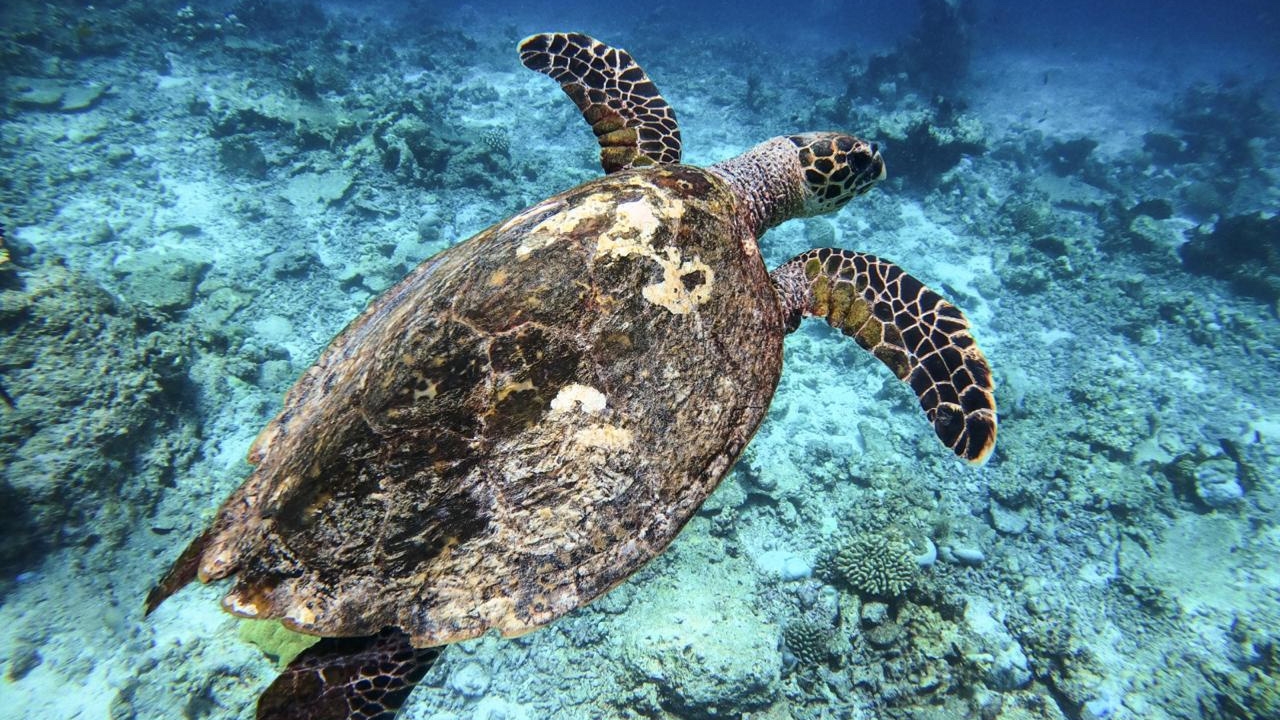
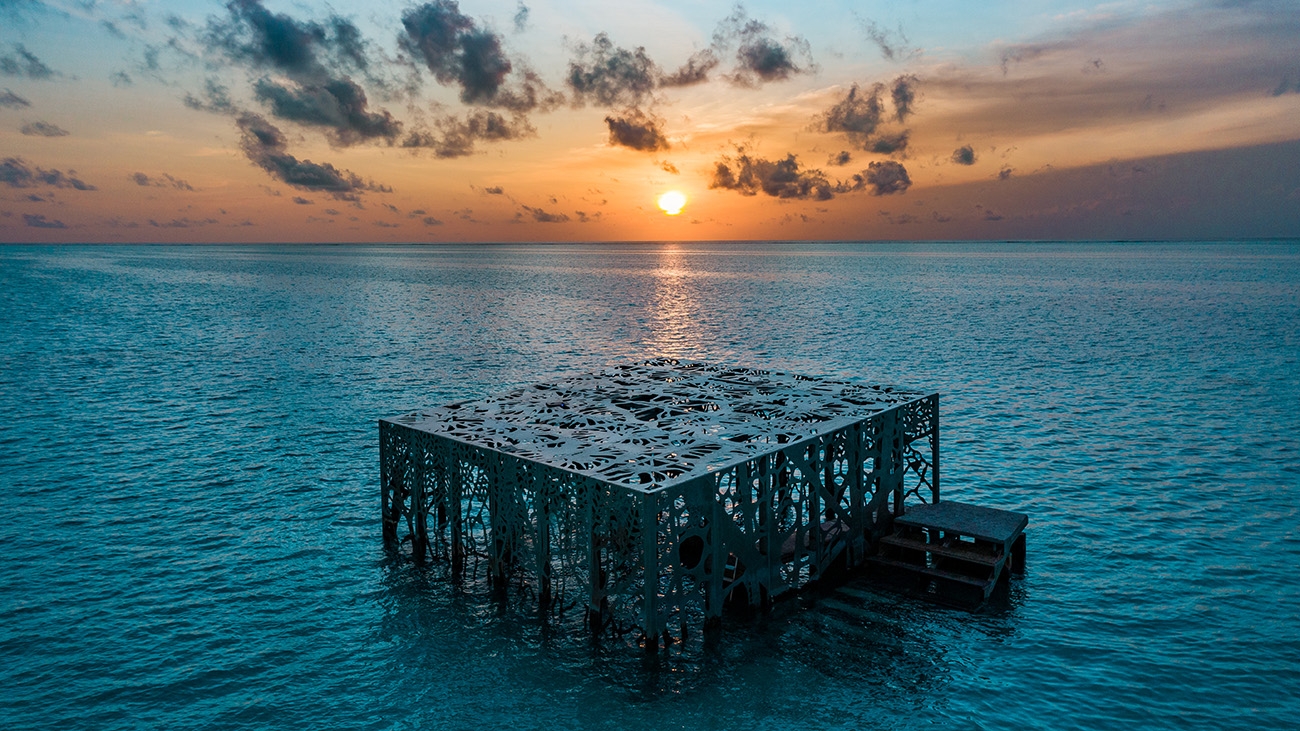
Fairmont Maldives Sirru Fen Fushi also has plans to be the first carbon neutral resort in the region. Why is this an important goal for you and how do you intend to achieve it
A: The key here is, there is no mains power in the Maldives. It’s something we take for granted and we don't really think about where our power is coming from but in the Maldives, like all remote locations, it's usually done on diesel generators. You’re powering a resort on diesel and you're burning quite a lot of it to run the resort. So for us, we looked at it and said we absolutely have to be in a position where we're able to try and reduce that carbon footprint. As a resort who cares about sustainability we should be doing [that] and it's got to be something we want to be able to produce. We're very fortunate we have very good owners that have a very strong ESG ethos in their company so they [agreed] we need to change and we need to be able to put solar into the space. So we work with Swimsol, which is one of the largest solar producers providers in the Maldives. Swimsol came and did a study with us and we’ve now put in 1.5 Megahertz of solar power, so basically all of the back of house, all the village rooftops etc are all solar panelled.
We’re also in the process of putting in a large solar sea project. It's basically a panel that floats in our lagoon. We have a 600 hectare lagoon, one of the largest lagoons in the Maldives, so that space enables us to put the solar sea project into the lagoon and generate additional solar power from that. Once that's complete, we will be producing around 10% of the entire solar production of the country. Full occupancy will allow us to drive the energy needs of the resort from 7am to 10pm.
We're not going be carbon neutral tomorrow, it’s a journey towards becoming carbon neutral. Of Accor’s Planet 21 programme, they plant a few million trees a year, and we can offset part of our carbon footprint on our tree planting process. We also plant coconut palms here on the island, as part of our environmental programme as well. And then with our guests, most of the airlines today have a carbon footprint [offset offering] you can choose to use. So it's really just education, moving on those steps and allowing people to understand that we have an impact on the planet when we travel.
Are you already seeing the effects of your initiatives
A: Absolutely. We released over 1,000 turtles on our beaches last year. We've seen a much bigger increase in our marine life. We've seen the reef bounce back and we've definitely seen the upkeep in our Manta population, shark population and eagle ray population, plus our turtle population has got a lot healthier.
Have you noticed an increase in guests’ interest in sustainability
S: Definitely. I have a lot of guests who before Covid wouldn't really ask me about some of our back of house measures such as ‘how do you power the resort Where are you getting the water from I've noticed you're plastic free in terms of water bottles and straws.’ That's something that has really garnered interest in the last 12 months.
What do you ultimately hope to achieve with your efforts at Fairmont Maldives Sirru Fen Fushi
A: It's not necessarily about what we're doing just on the island. I think it's more about how we raise that awareness in the [sustainability] space. To be able to go out to all of the schools in the northern atolls and sit there and change their relationship with waste - that's really the message. It's not just about ‘this is what Fairmont is doing’, it's not about greenwashing, it's more about how do we change mindsets… so you really are creating that next generation of eco warriors. I think that's incredibly important. Because I think the [issue] that most people feel is, ‘I'm just one person, what can I do ’ The reality is that you can do a lot and then have that courage of conviction that your tiny contribution adds to his tiny contribution and collectively it's a wave. Guests are part of that journey and they can take that education and that spark home, but it's really about the local spark that we want to start.
